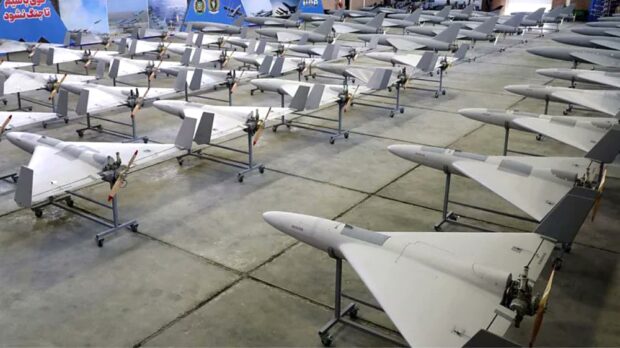In a visit to Tehran last week, Bolivia’s Defense Minister Edmundo Novillo Aguilar clinched a deal with his Iranian counterpart that is expected to include the delivery of Iran-made drones to La Paz.
At a joint press briefing in Tehran, Iran’s Defense Minister Mohammad Reza Ashtiani expressed Tehran’s readiness to provide the Bolivian military with “the equipment it needed to combat drug trafficking and secure its borders.” Such cooperation, the Iranian brigadier general said, “could serve as a model to our friends in South America,” according to a report by the state-run Fars News.
Upon his return to La Paz, the Bolivian defense minister spoke of his government’s interest in receiving Iranian drones. While details as to what types of Iranian drones are to be shipped remain murky, the Tehran agreement has already drawn concern from the United States.
“We urge all nations … to carefully consider before they enter into defense arrangements with a nation like Iran,”
said John Kirby, director of strategic communications for the US National Security Council, in an interview with Voice of America.
The worry has been graver in neighboring Argentina, which has had simmering tensions with Iran since a 1994 deadly bombing of a Buenos Aires Jewish center blamed on the theocratic state in Tehran. The Argentine government has called on Bolivia to clarify details of its military cooperation with the Islamic Republic. Yet the Bolivian defense minister has said his government is not looking to buy war weapons from Tehran, dismissing the concerns as “exaggeration.”
Hard-line loyalists of the Islamic Republic found a moment of triumph in the Iran-Bolivia deal, celebrating how a drone program developed by Iranians was paving the way for Tehran’s influence in Latin America. They were following the same pattern that has held for Iran’s controversial drone deliveries to Russia, which the West says are being used in the war against Ukraine. While the Islamic Republic officially denies such shipments, its hard-line supporters and ideologues have not shied away from expressive praise for the policy.
Iran has long considered Latin America as “the US backyard” where it could “deepen its strategic influence.” Last month, President Ebrahim Raisi visited Venezuela, Nicaragua and Cuba to sign multiple agreements with the three leftist states, with which Tehran is proud to share an anti-American agenda. In its stated foreign policy, the Raisi administration insists that cooperation with non-Western allies could salvage Iran from international isolation and remedy its battered economy.
In the wake of the Tehran-Bolivia military cooperation deal, reports have also come out indicating that Venezuela is already using Iranian fast-attack boats. Expert military platforms monitoring drills focused on a recent Venezuelan navy exercise where they specifically detected Iranian Zolfaghar boats on which Iran-made Nasr-1 cruise missiles were mounted.
Sources: Al-Monitor; Twitter; YouTube

